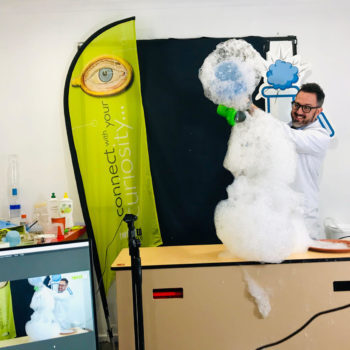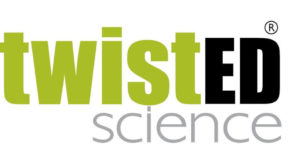Bubblemania
LEARNING OUTCOME
Bubbles are a thin layer of liquid surrounding a volume of air.
Understand surface tension and its importance in bubble making. Bubbles require both a liquid and a gas. The shape of a bubble is independent of the shape of the bubble maker. A sphere is an inherently strong shape.
SESSION activities
- Blow bubbles using a straw
- Make your own simple bubble mix
- Experiment with a bubbleator from the supplies collected
SCIENCE EDUCATOR demonstrations
- Bubble shape is independent of the shape of the blower although it is possible to make a bubble cube
- The colours visible in a bubble surface are an indication of the thickness of the solution
- Bubble surfaces are stronger than the air space they surround
- Surface tension is an important component of bubble making.
STUDENT experiments
- Experiment with bubbles, how they join and what they look like
- Check out the surface colours
- Sculpt bubbles, making bubble shapes
- Make a bubbleator and make a mountain of froth
- Discover that bubbles can bounce
Chemical Sciences
Australian curriculum
Yr F- 2 Everyday materials can be physically changed in a variety of ways ACSSU01
Yr F- Pose and respond to questions, and make predictions about familiar objects and events
ACSIS024
Yr F- 2 Participate in guided investigations and make observations using the senses
ACSIS014, ACSIS038, ASCSIS037
Yr 3-4 Natural and processed materials have a range of physical properties that can influence their use ACSSU074
Yr 3-4 With guidance, plan and conduct scientific investigations to find answers to questions, considering the safe use of appropriate materials and equipment
Yr 3-4 With guidance, identify questions in familiar contexts that can be investigated
scientifically and make predictions based on prior knowledge ACSIS065
Yr 5 -6 Solids, liquids and gases have different observable properties and behave in different ways ACSSU077
victorian curriculum
Yr F-2 Objects are made of materials that have observable properties VCSSU034
Yr F-2 Respond to and pose questions, and make predictions about familiar objects and events VCSIS051
Yr 3-4 Questioning and Predicting VCSIS065
Planning and conducting VCSIS066
Yr 5-6 Questioning and Predicting VCSIS082
Planning and conducting VCSIS083

